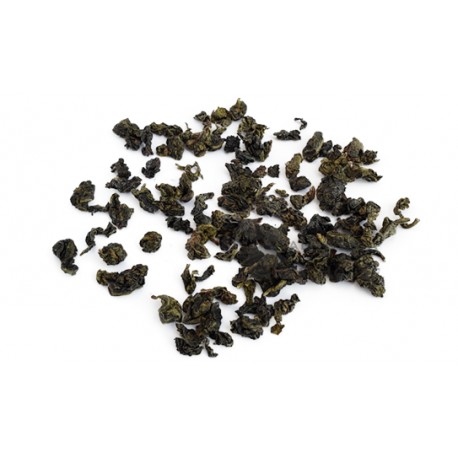If you ask any serious tea lover what was their first true tea love, you will very often hear the same answer - Tie Guan Yin. It seems almost impossible that out of thousands of different tea types; it is mostly one tea that converted non-drinkers into drinkers. On the other hand, with almost every single tea shop selling Tie Guan Yin, wouldn’t there be more tea lovers out there? No, and the answer is very simple.
Tie Guan Yin - Common tea that will never lose its charm
Tie Guan Yin or Ti Kuan Yin is a Chinese oolong tea with a distinctive shape and flavor. Or, dozens of flavors. This tea borrowed its name from the Buddhist Goddess of Mercy. Home of Tie Guan Yin is Anxi in Fujian, although nowadays it’s produced in other areas as well. Tie Guan Yin has become so popular that mass production is certainly a lucrative business for many producers. And that’s what makes finding true Tie Guan Yin even more difficult. If you are unlucky and try the „wrong“ type, you might never understand its charm and beauty. But, if you are lucky enough to try the good one, it is very likely you will develop a true appreciation for tea.
Dozens of Types
There are two main types of Tie Guan Yin tea - modern and traditional, with modern taking over the market. Qing Xiang or „green taste” is much lighter and more floral than the original version. Even those two main types can be divided in many other sub-types. True traditional Tie Guan Yin is very difficult to find these days as the general taste preferences changed over the years. This tea can be harvested during any season, including winter, but the best one is produced in spring.
The Exchange Between Mainland China and Taiwan
Unlike Taiwanese teas, Chinese oolongs are usually not rolled into semi-ball shape. Tie Guan Yin is different. In the same way, Taiwanese teas are usually rolled into semi-ball shape. Tie Guan Yin is not only produced in Mainland China, but in Taiwan as well. It’s interesting Taiwan took over the production of traditional charcoal roasted Tie Guan Yin; while Mainland China turned more towards the production of greener teas, more similar to Taiwanese oolongs.
Difference in Leaves
Tie Guan Yin can be made of several tea varieties. Unlike Taiwanese oolongs that look like small branches when unfurled, with long stalks, full leaves and tips, Tie Guan Yin has no stalks. If talking about greener types, leaves should be vibrant, unbroken and with a very intense scent. Tie Guan Yin is one of those teas that will lose its scent and flavor very soon if stored incorrectly. That’s why it is often sold in vacuumed bags, mostly in very small, less than 10 grams packages.
Brewing Heaven
Brewing versatility is another amazing fact about Tie Guan Yin tea. It can be brewed in a regular teapot, in an ordinary mug, or using multiple steeping technique. It’s a perfect loose leaf tea choice for office, as you can simply put the leaves in your mug and add hot water. There is no need to take out the leaves while drinking, and they can be re-steeped multiple times. Good Tie Guan Yin won’t get bitter - it will have a very distinctive, light, floral and fresh flavor and scent, sometimes with fruitiness and creaminess.
Searching for the Best Tea
Tie Guan Yin tea is the most versatile Chinese oolong. With hundreds of versions on the market, it’s very important not to give up when finding the one that suits you the most. Finding the right one is often a process of trial and error. We wanted to make this process a bit easier and tried many types to find the right one.

Our Tie Guan Yin comes from Anxi in Fujian, from a small organic farm. It has been harvested in spring and processed in modern green style, with much more flair and playfulness from traditional types. We recommend using multiple steeping technique to truly understand complexity and beauty of this tea.
Have you tried Tie Guan Yin yet? What is your favorite type?



Leave a Reply Cancel Reply